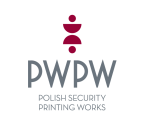| We’ve got Certificate for Passports with SAC Protocol | |
| (03-10-2014) |
PWPW S.A. has joined the small number of companies certified for SAC protocol passports, required by the European Union. SmartApp, the company’s proprietary solution, has successfully accomplished Common Criteria certification.
Since 1 January 2015, all passports and residence permits issued in the EU need to have microprocessor chips embedded in them, secured with SAC mechanism. So far, only a handful of companies globally have been certified for the manufacturing of documents with that protocol. This group has been recently joined by the Polish company, whose SmartApp solution has successfully passed Common Criteria certification tests. With this certificate, PWPW S.A. has gained more opportunities to compete in international tenders for passports and digital documents.
PWPW SmartApp-ID 3.1 (IFX) is PWPW S.A.’s proprietary solution designed for digital documents, such as e-passports, residence permits, electronic identity cards and passes. It comprises professional software (applet), an operating system and a microprocessor chip dedicated to applications which require high level of security. The primary task of the applet is to store data (personal details, document details, a photo, fingerprints) and ensure secure access to the stored data through special mechanisms, e.g. the SAC one.
SAC (Supplemental Access Control) is a new way of securing documents, which, by decision of the European Commission, is mandatory in passports and residence permits issued by EU Member States since 1 January 2015. This system is also recommended by the International Civil Aviation Organization (ICAO) for use in travel documents worldwide.
The Common Criteria Certificate is, first of all, a proof of high quality, compliance with strict security requirements and – what is equally important – it means that the solution may be used in travel documents issued worldwide, including in the European Union which has the most stringent regulations in this regard.






